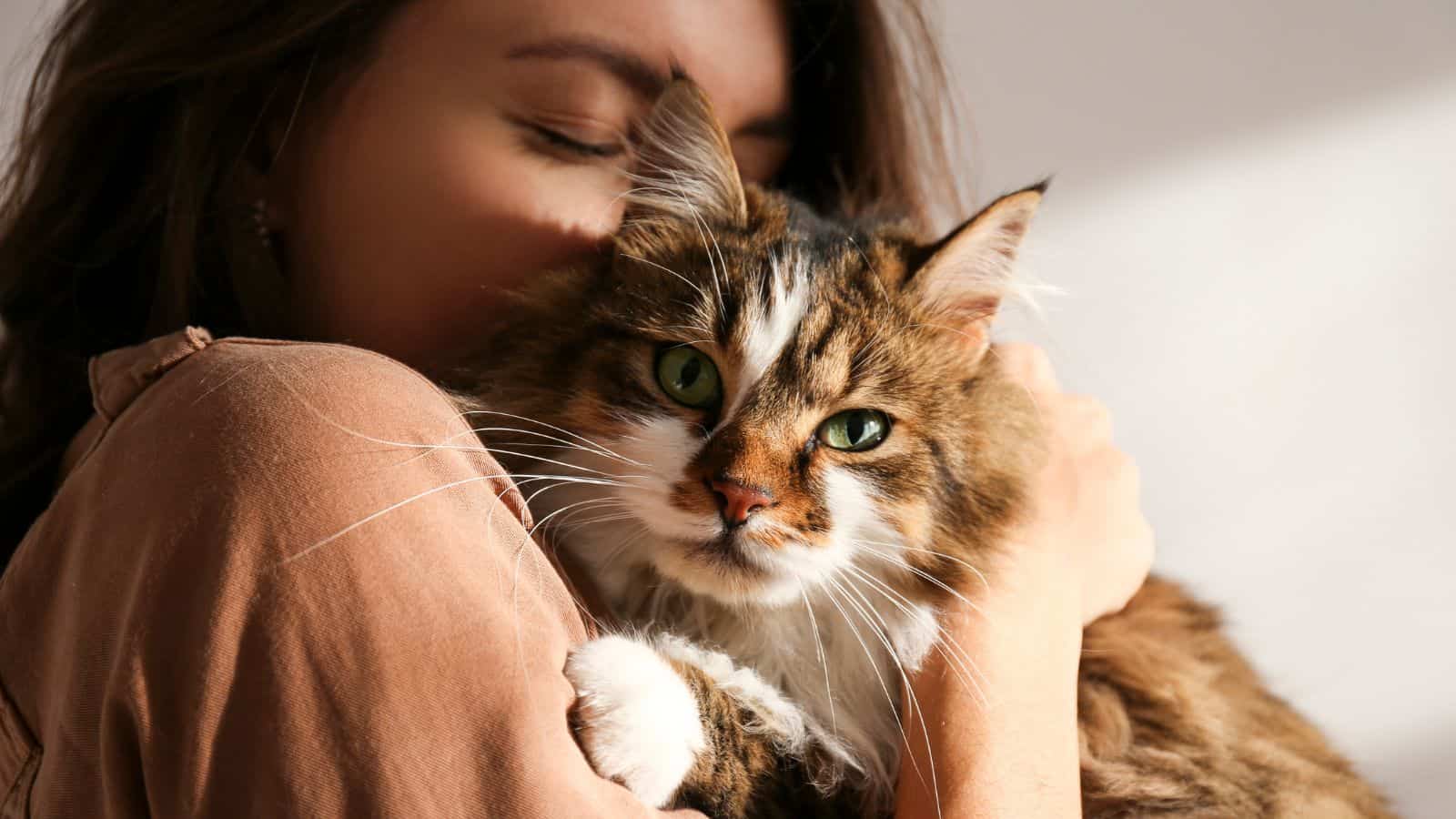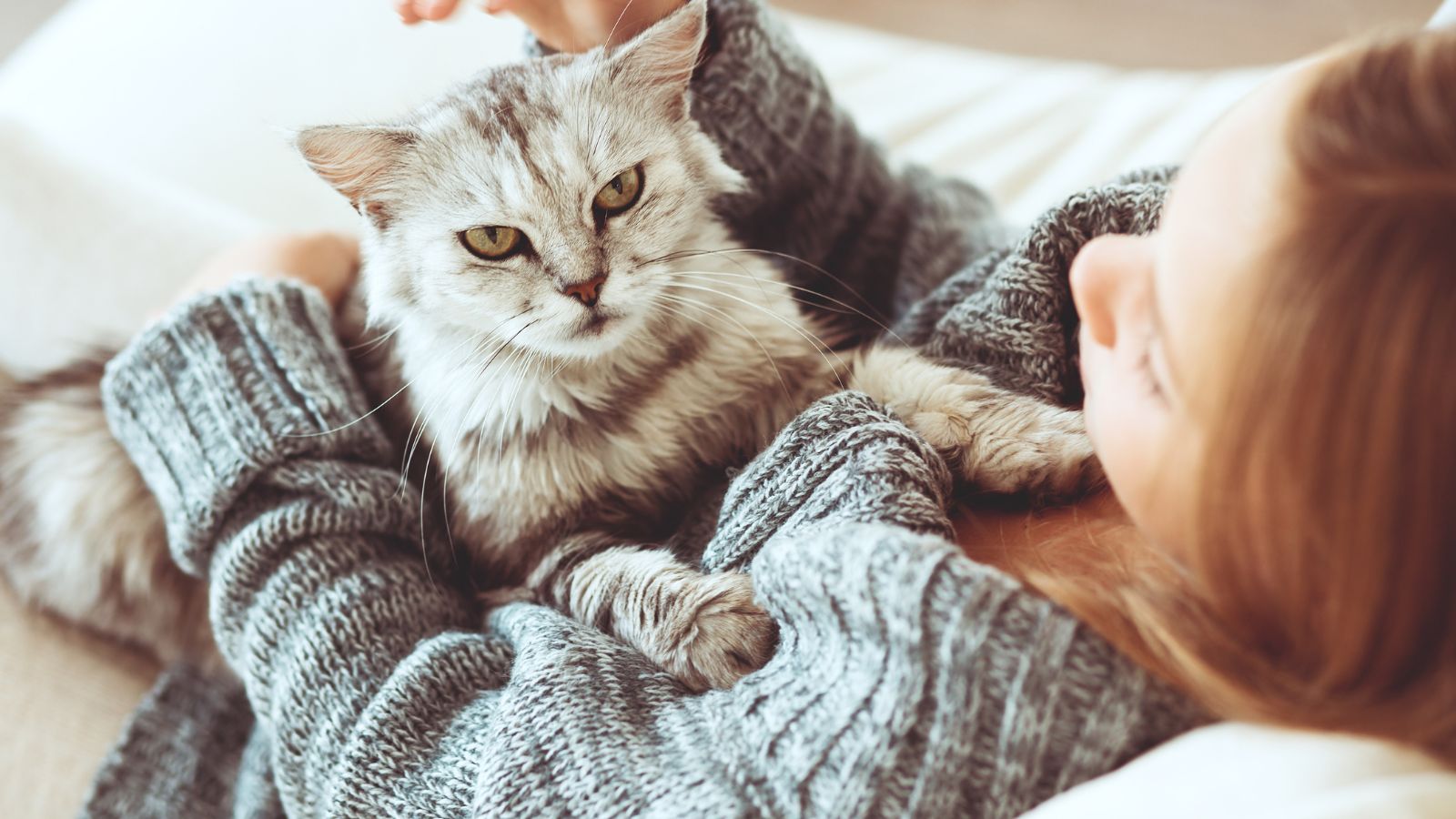Does your cat purr a lot? Have you ever wondered why it does this? You’ll find 17 reasons why cats purr in this article.
They Are Happy

According to Cats Protection, one of the best ways to make your pet happy is by “providing your cat with appropriate play [as this] encourages them to exhibit natural behaviors.” And if your cat is happy, it will purr a lot to show its contentment.
They Are Relieving Stress

PDSA says that “one of the biggest causes of stress for cats is changes to their environment or home. This might be new furniture or moving furniture, redecorating, painting, or new carpets.” So if your cat purrs, it might be doing so to alleviate the stress and anxiety it feels.
They Want to Go Outside

“Cats sleep between 12–16 hours a day,” says PetMD. But when your cat is awake, it will want to be active. A cat will purr when it wants to be let outside. If your pet purrs to get your attention and then begins to make its way toward the door, it’s because it wants you to let it out.
They Want Food

A cat will purr in front of you when it wants something. It might purr to indicate that it is hungry and wants something to eat. With time, you will learn to distinguish between the different types of purrs your cat makes and what they want you to do in response to them.
They Are Communicating

Cats communicate with one another by purring. Rover.com says that they also use many other methods to communicate with one another, “including trills, hisses, yowls, growls, snarls, body language, and scenting.” Yes, your purring cat might be having a chat with its feline buddy.
They Are Bonding With You

A cat that purrs, especially while you stroke it, is bonding with you. Your cat will purr a lot when it feels comfortable around you. Try to spend time with your cat each day so that it can get used to you and feel at home.
They Want to Be Pet

“Most friendly cats will enjoy being touched around the regions where their facial glands are located, including the base of their ears, under their chin, and around their cheeks,” says The Conversation. If your cat wants you to stroke it, it will probably start purring and making a fuss near you.
They Are Bonding With Other Cats

Have you heard your cat purring a lot when it’s around other cats in the home or the neighborhood? Then this shows that the cat is happy with its feline friends and is bonding with them. Cats that feel happy with one another purr a lot.
They Are Bonding With Their Kittens

Mother cats purr when nursing their kittens. When they do this, they are creating a bond with their kittens. The purring is soothing to the kittens and helps them relax. According to WebMD, most kittens take between four and six weeks to be weaned from their mother. You can expect a lot of purring to go on at this time.
They Are Healing

Cats purr when they are healing or recovering from an injury. The action of purring and the vibration that it causes have been known to speed up the healing process and help the cat recover faster. Yes, purring has healing and therapeutic properties that are beneficial for your cat.
They Are Relaxed

Cats also purr when they’re relaxed. They will purr when lying down, curled up, or in a cozy spot lying in the sun. These animals love to be comfortable. So, when you stroke them and they feel really relaxed, they will begin to purr non-stop.
They Are Interacting With You

Cats purr as a sign of happiness and appreciation for the interaction they have with you. If your cat is purring near you, this may be because it is happy to be in your presence. Your cat might purr while it sits on your lap, even when you’re not stroking it. It’s just happy to be there with you.
They Are Greeting You

Does your cat purr when you come back to the house after being away for a while? Then this is your cat’s way of saying hello to you! Your cat is purring because it is happy to see you and is glad you are back home.
They Are Cold

A cat that feels cold might begin purring. It will do this to warm itself up. The vibrations that the cat makes while purring get its body moving and help it to feel warmer. So if your cat is purring a lot on a cold day, give it a little blanket to cuddle up into.
They Are Comforting You

Cats are highly intelligent animals that can pick up on body language and know when their owners are not feeling well. If your cat begins to purr near you while you are sick, they are doing this to comfort you and to help you feel better.
They Are Thirsty

A cat might begin purring to get your attention so you will respond to one of its needs. A cat that is thirsty and needs more water in its water bowl might purr non-stop until you give it water. Ensure your cat has access to fresh water every day.
They Are Soothing Themselves

When cats purr, they feel relaxed. The vibrations of the purring can make the cat feel content. The purring gently soothes the cat, reduces tension, and makes it feel more at ease. A cat that seems to purr for no reason is simply comforting itself.

